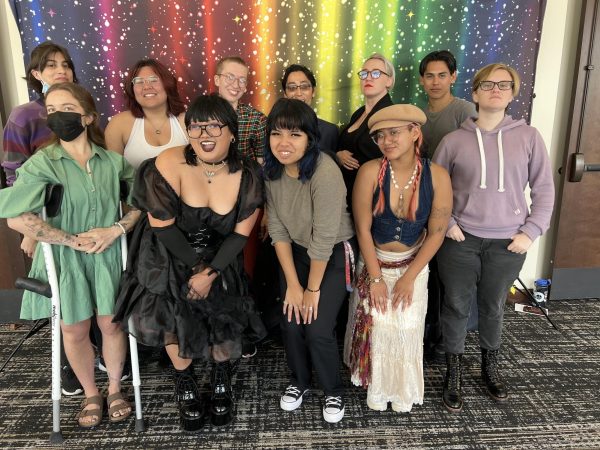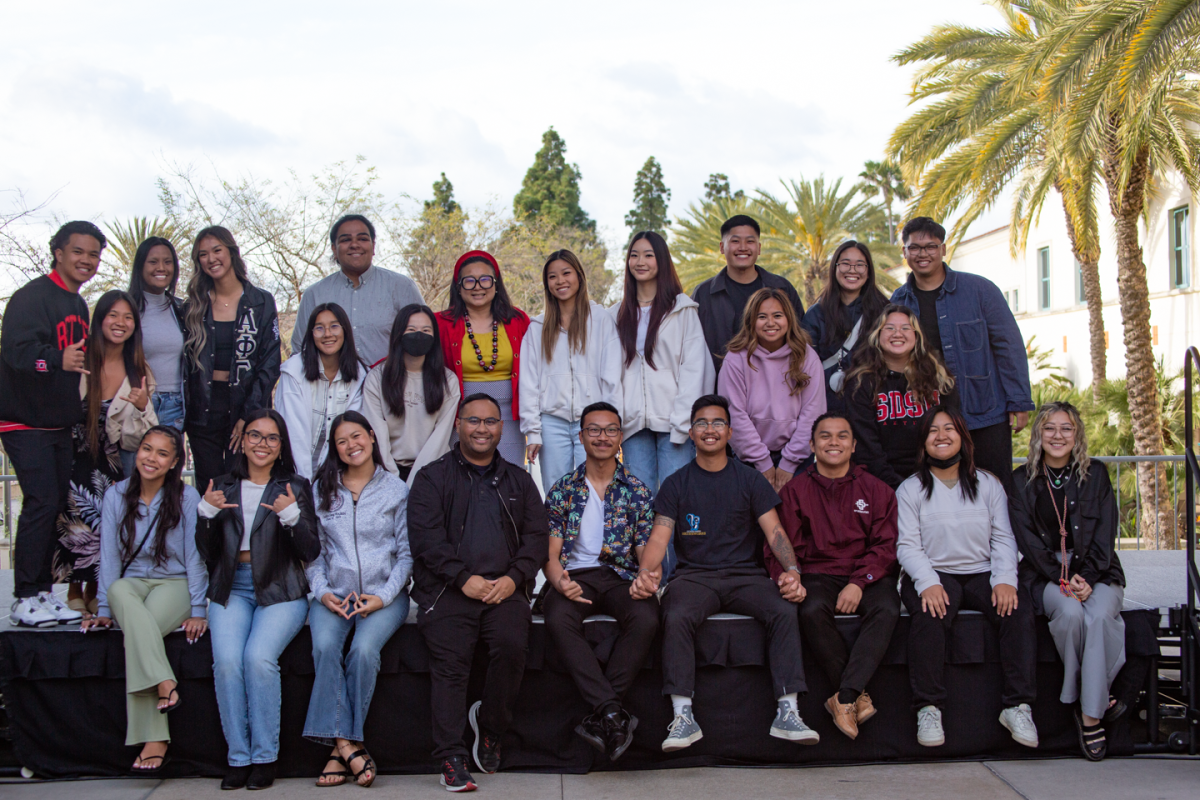Graduation is a celebration of all the triumphs and struggles of a college student as they reach completion of their degree, become an adult and discover their place in the world.
Not only is graduating a culmination of all the academic and extracurricular achievements of a student but it is a testament to their personal journeys as they strive to grow as individuals.
Although the university graduation is a special and incredibly memorable milestone, community graduations offer students a ceremony that is a more intimate celebration of their individual journeys and a reminder of their place in the community.
There are many different community graduations to celebrate the diverse communities at San Diego State University, including ceremonies geared toward students who are Asian Pacific Islander Desi American, Latinx, Black, Jewish, Native and members of the LGBTQ+ community.
The term “Lavender Graduation” has long been used by other colleges for LGBTQ+ graduation ceremonies as the color was used for LGBTQ+ rights as far back as the Civil Rights movement.

“Lavender is a symbol of resistance and empowerment for the community,” said Kay Wong, the director of SDSU’s Pride Center, who added that the ceremony allows students to “see themselves in celebration.”
The Lavender Graduation includes various aspects that celebrate the students’ identities, such as rainbow cords, rainbow conchas, a drag performance and take-home succulents to serve as a reminder of their time spent at the Pride Center.
“Being recognized and honored by queer and trans faculty and being surrounded by queer and trans staff, it’s just a feeling that you can’t really describe,” Wong said. “It’s like, you don’t know that you’re lacking that until you have it.”
Wong expressed admiration for how the deans of various colleges at SDSU provided the funds for Lavender Graduation and remarked that this gesture made her feel deeply grateful and less alone in the work she was doing.
“It’s not just me trying to make these things happen,” they said. “Deans of colleges (said), ‘We know queer students are within every college, within every major and we want to support that.’”
Virginia Loh-Hagan, director of the SDSU APIDA Center, mentioned that she sees community graduations, especially cultural ones, as a family gathering, adding that for APIDA students, it is an opportunity to be seen and heard as well as a way for their accomplishments to be recognized.
“Cultural graduation celebrations are more about community,” Loh-Hagan said. “Because they’re smaller and less formal, folks can kick back and enjoy themselves.”
Loh-Hagan also mentioned how graduation is a highly special occasion for many APIDA and BIPOC students, as many are first-generation college students, or have faced language/cultural barriers during their time in college.
“An event like the APIDA graduation celebration allows for our APIDA students to feel comforted by a sense of connectedness and belonging,” Loh-Hagan said.
This year’s graduation ceremony is especially important to her since many of the graduates have been a part of the APIDA Center since it opened in 2020.
“Our students have worked so hard to earn this recognition,” Loh-Hagan said. “It’s important to mark their success and their future possibilities.”
For a full list of SDSU’s community graduations, visit the SDSU website.






